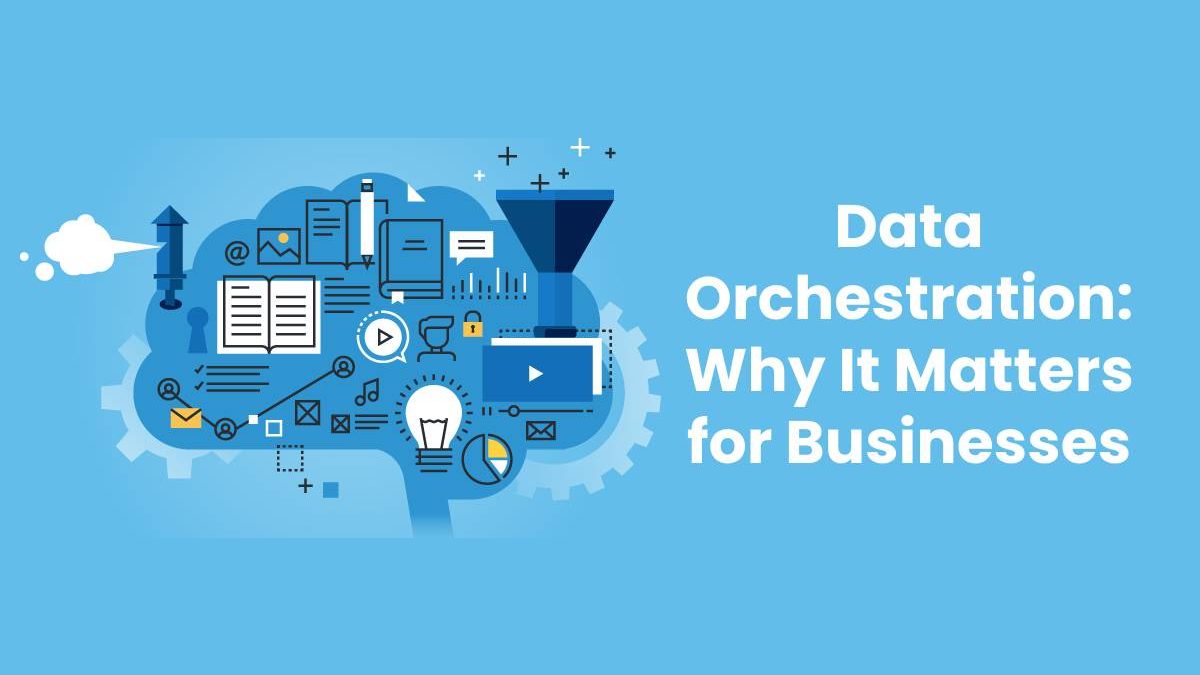Data orchestration is a process in which you use software to collect data from multiple locations to consolidate it and make it usable for data analysis. As businesses continue to onboard cloud technologies, embrace digital services, and run dispersed workforces, the need for data orchestration grows. Without it, you have data living in silos — inaccessible and unable to be analyzed or leveraged — keeping it in the dark. But with the one consolidated data pipeline that data orchestration provides, you can make data-driven decisions for your business and save time and money. However, breaking down these silos is easier said than done.
Read on to learn how it works, the benefits of data orchestration, and how businesses use it to gain real-time, valuable insight into their operations.
Table of Contents
Benefit 1: Eliminating Those Siloes
Why is it important to break down data silos? When your data is siloed, you can’t make good use of it. Scattered data makes it challenging to have a grasp on what that data is capable of telling you. Moving data among locations is also challenging, which renders many companies content just to let their data live in those silos.
But by fragmenting your data through data orchestration, you can combine the silos and storage areas in which your data lives to prepare it for analysis. And with data analysis, you can make all kinds of important changes to your business, such as improving customer experience, improving employee experience, saving money, operating more efficiently, planning for the future, and more.
Benefit 2: Make Data-Driven Decisions
Data orchestration tools can help you speed up and simplify accessing your data so you can make real-time moves for your business. Without data orchestration, accessing data from multiple locations and storage systems can take a long time and create bottlenecks. Manually transforming data to be loaded into a business intelligence tool also adds to that complicated process and time. But data orchestration helps you skip those steps and start analyzing right away, so you can make financial, personnel, and product or service decisions based on what your data has to show.
Benefit 3: Ensuring Data Governance
A business needs data governance to maintain its data’s security, consistency, and quality. A data governance strategy is how you organize, categorize, and set permissions for your data. It’s essential for any business trying to maximize its data, but it can be difficult to ensure without data orchestration. With data scattered among multiple systems and storage tools, governing it is challenging.
Data orchestration organizes your data in real-time, acting as a natural complement to data governance. The two support each other’s goals of enabling you to access high-quality, organized data to make those powerful data-driven decisions.
Benefit 4: Better Structured Storage
If you’re like many businesses today, you have a hybrid or multi-cloud system and a dispersed workforce. These elements make data management difficult, which is where data orchestration can help ensure data consolidation across locations and systems. By applying a data orchestration platform, you no longer have to grapple with dozens of storage systems and computation roadblocks.
Your IT team also does not have to manually write code to orchestrate data and control multiple data sources and types. Even if you have thousands of data pipelines, [data orchestration] can create protocols for funneling inconsistent data into one consolidated pipeline.
Benefit 5: Reduce Manual Work
Speaking of manual coding, data orchestration improves your developer’s productivity. The more layers of cloud, apps, and devices you add to your network, the more coding and maintenance IT is responsible for. But humans have limited time and capabilities. [Data orchestration] relieves IT of these burdens because it automates what used to be manual processes for creating scripts.
Curious about how data orchestration and low-code ETL can help your business? Get a K3 demo today. Our solution allows companies to visualize and normalize data easily — no coding required.

